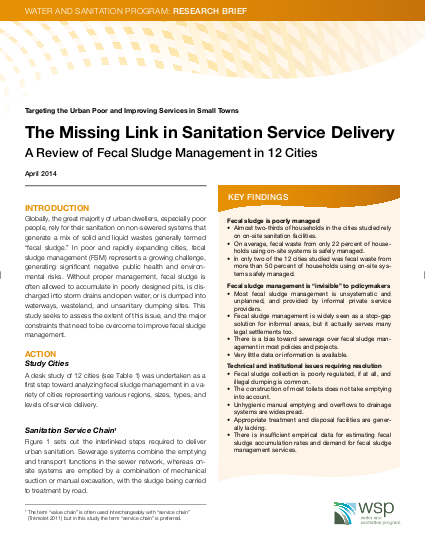A Review of Fecal Sludge Management in 12 Cities

Globally, the great majority of urban dwellers, especially poor people, rely for their sanitation on non-sewered systems that generate a mix of solid and liquid wastes generally termed “fecal sludge.” In poor and rapidly expanding cities, fecal sludge management (FSM) represents a growing challenge, generating significant negative public health and environmental risks. Without proper management, fecal sludge is often allowed to accumulate in poorly designed pits, is discharged into storm drains and open water, or is dumped into waterways, wasteland, and unsanitary dumping sites. This study seeks to assess the extent of this issue, and the major constraints that need to be overcome to improve fecal sludge management.
Resource collections
- UN Habitat - Urban Response Collection
- Urban Response - Urban Crisis Preparedness and Risk Reduction
- Urban Response Collection - Community Engagement and Social Cohesion
- Urban Response Collection - Economic Recovery
- Urban Response Collection - Environment and Climate Change
- Urban Response Collection - Housing, Land and Property
- Urban Response Collection - Urban Crisis Response, Recovery and Reconstruction
- Urban Response Collection - Urban Resilience